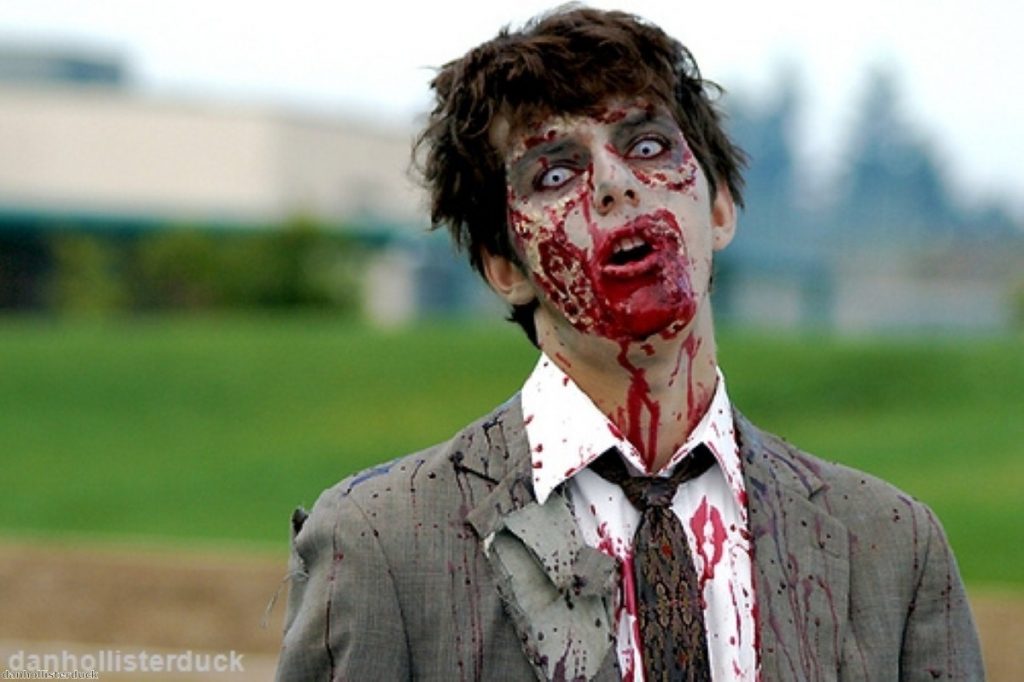Stop bashing the zombie parliament
Right now we need MPs to be doing less talking and more listening – so what's wrong with a zombie parliament?
The number of complaints in the national papers is steadily mounting.
It started last May, when a light (ish) Queen's Speech prompted Labour to notch up some cheap partisan points. Shadow leader of the House Angela Eagle complained: "It does feel a little bit like it is the un-dead running around at the moment."
As the Commons' day shortened, the phrase 'zombie parliament' became more and more widely heard. It was used again last month by Tory ex-ministers attacking the Fixed Term Parliament Act which has got us into this mess. "The current arrangements are for the convenience of the politicians not for the good of the people," Sir Alan Duncan explained.


Now it is everywhere.
Commons adjourns four-and-a-half-hours early. Onwards shuffles the zombie parliament.
— Political Animal (@politic_animal) February 9, 2015
Zombie Parliament? Or night off cos of Tory Black + White Ball? Commons adjournment debate (normally 10pm Mon) taking place now, 5hrs early.
— Paul Waugh (@paulwaugh) February 9, 2015
I've posted the text of Michael Gove's excellent speech here @MatthewdAncona @Policy_Exchange http://t.co/cX4G1efCWt pic.twitter.com/nQx4Jk5ODt
— John Rentoul (@JohnRentoul) February 5, 2015
Michael Gove's speech presents a terrible alternative rationale for the state of play in Westminster. He attempts to deny the charge by painting a picture of a parliament in which MPs are given free rein to do what they like. The reality, everyone knows, is nothing like this. The government continues to dominate, stifling real debate and suppressing the power of backbenchers. For Gove, the limited reforms which have been achieved are just a handy cover to rebuff the 'zombie' charge.
Whether driven by partisanship or just cynicism, the tag is plain unhelpful. It's based on the assumption that, if only time were available, MPs would be frantically legislating away right up until polling day. The government is condemned for running out of ideas when the truth is it has already had more than enough of them.
It is actually the media which has run out of ideas. So journalists have fixed on a post-expenses orthodoxy: that all MPs are determined to minimise work and maximise pay in every way possible. The 'zombie parliament' label is just an extension of the 'MPs' six-week summer holiday' complaint. It plays into the public's thoroughly negative perception of politics – and it is very unfair.
There is much more to being a member of parliament than making speeches in Westminster. The other half of the job, which many seem to assume takes place automatically via some back-office function, involves actually listening to the electorate. Representative politics is about more than just having opinions. It's about job insecurity. Every five years they must reapply. So they need to show they're listening in their constituency as well as talking in the Commons chamber.

Just as government gets its biggest reforms out of the way at the start of a parliament, so MPs' politicking takes on a more local focus at its end. The whips of all parties, faced with a thoroughly unpredictable election outcome, are giving their MPs as much chance as possible of holding on to their seats. Yes, they're only in London from Monday to Wednesday. But that's only because they're spending their time much more effectively – and usefully for the voter – by listening to their constituents' concerns. This is exactly what should be happening. It is called democracy.
Yet the 'zombie parliament' moaning is only intensifying as the Commons' affairs slowly wind up. The complaints are worse now than they have been for many years. And there is one man who deserves the blame.
Thanks, David Cameron, for finding a way of shifting the political heat from No 10 to the Commons. In previous parliaments, all the pressure was on the prime minister. He was the man (or Thatcher) with the power to call a general election at will. The Fixed Term Parliament Act changed all that. Giving away responsibility to an immovable schedule ended inches of newspaper columns at a stroke. All that speculation about whether an early election might be in the offing has been replaced by the tedium of a five-year government – with all the related frustrations as it winds up.
What is bad for journalism is often good for the country. That has not stopped the media transferring its focus from the PM to MPs, though.
Backbenchers shouldn't be persecuted for trying to get re-elected. They face a vicious, unwarranted attack by journalists who are letting their professional frustrations make them forget how democracy actually works.

